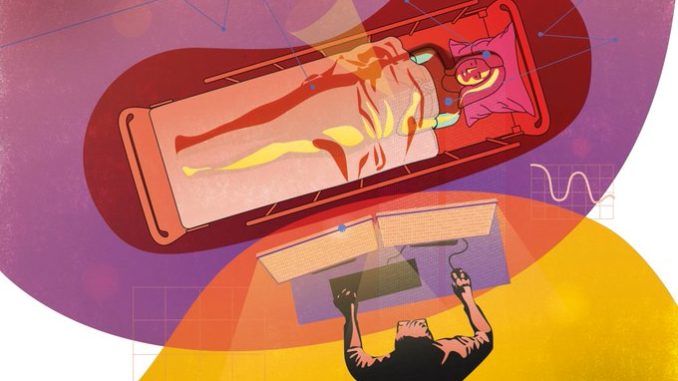
Whether you’re a patient or a physician, artificial intelligence (AI) is poised to make some big changes in how you experience medicine. These “smart” systems have long promised to revolutionize health care by helping doctors dig through massive amounts of data and augmenting their decision-making. Though it’s taken years of rigorous research to test the utility of emerging AI tools, the revolution may finally be near.
In this special section, we explore how AI could help doctors diagnose diseases, like breast cancer, years before they’re detected through conventional means. You’ll also learn about AI’s role in advancing mental health treatment, from virtual “chatbots” that supplement therapists to algorithms that can pinpoint brain activity associated with certain disorders. Still, there are plenty of blind spots to illuminate, like whether the tech can actually make ethical medical decisions, as well as its potential to cement racial bias and widen inequities in care. Read on to learn more about AI’s potential to make health care more accurate, accessible and efficient — and the barriers standing in its way.
